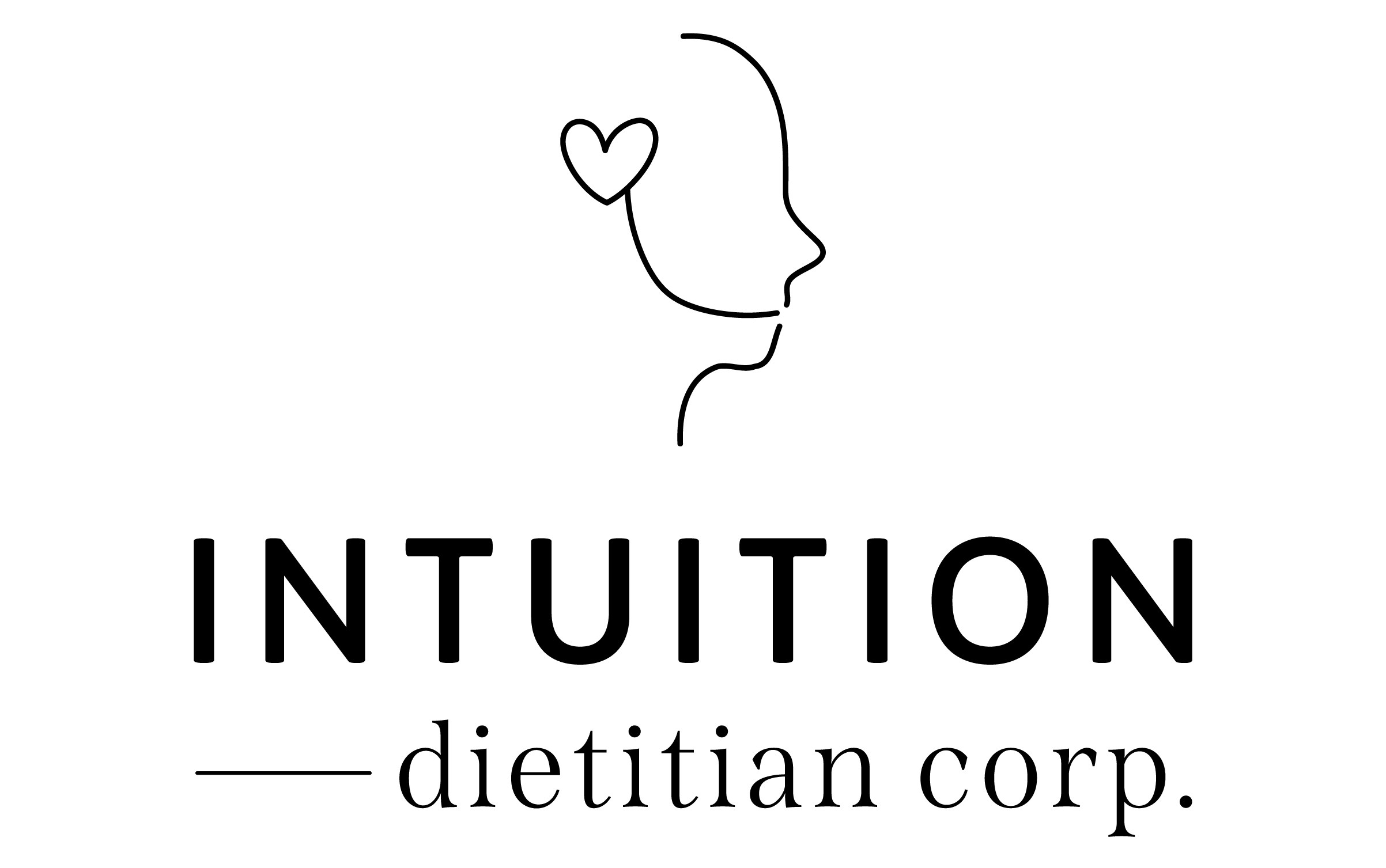Written by Emma King and reviewed for medical accuracy by Joelle Davidson, RD
Proper nutrition is something that should be aspired for throughout life, but especially when growing a human being! Eating enough and getting the right nutrients is important for encouraging proper growth and development in the baby and to keep you feeling your best throughout your pregnancy. After birth, it is vital to keep up your healthy eating habits to aid in recovery and to support breastfeeding if you choose to do so.
Important Nutrients During Pregnancy
Though institutions like The Government of Canada and the American College of Obstetricians and Gynaecologists recommend taking daily prenatal or multivitamins, this should not and cannot replace everyday healthy eating and nutrition while pregnant. These supplements can be a great way to get enough of important vitamins that may otherwise be difficult for people to get on their own and therefore can be a great and necessary tool to aid in a healthy pregnancy.
Folate/Folic acid
Folic acid is the synthetic form of folate, a B vitamin which helps to prevent serious problems with the development of the brain and spinal cord. Folate can be found naturally in fortified grain products like cereals or bread, dark green vegetables (broccoli, spinach, asparagus, peas and Brussels sprouts), corn, beans, lentils, and oranges. The government of Canada also recommends that pregnant people should take a multivitamin with 0.4 mg of folic acid every day (Canada Health, 2022).
Protein
Protein is important for the baby’s growth and can be found in many foods. There is newer research that shows there may be an even higher protein need in pregnancy than originally thought. Some examples include lean cuts of meat, poultry, nuts, beans and seeds. Be extra careful when eating meats and poultry while pregnant as eating undercooked food can have serious effects on the child’s health.
Iron
The demand for iron while you’re pregnant is drastically higher than when you’re not pregnant. The body needs to increase its blood supply to ensure enough oxygen is getting to your baby. It’s also important that your baby has built up a good store of iron for after birth to prevent illness. Common sources of iron include red meats, iron-fortified products like breads or cereals, beans, and lentils.
Calcium
Calcium is needed to aid in the development of strong bones and teeth for the baby, as well as helping to support some body systems with everyday functions. The best food sources for calcium are dairy products, but it can also be found in appreciable amounts in fortified food products like cereals or select fish like salmon or sardines.
Vitamin D
Vitamin D works with calcium to promote bone and tooth health. The main source for this vitamin is sunlight on the skin, though it can be obtained in small amounts through foods such as fatty fish or fortified food products. The majority of us will need to take a supplement. People living farther away from the equator are not able to make vitamin D for a large part of the year.
Healthy Weight Gain During Pregnancy
Because of the societal pressure and belief that a smaller, thinner body is better, many find themselves scared of the weight gain associated with pregnancy and may even take steps to reduce their overall weight gain. However, restricting your diet or food intake while pregnant can result in serious complications and compromise both your health and that of the baby. Aside from the fact that you are growing another human, weight gain is associated with an increase in blood volume, the growth of the uterus, placement, amniotic fluid, and fat stores. Pregnant people need to consume an extra 340-450 calories depending on which stage of pregnancy you are in (Healthlink, 2022) to support both you and the baby. If you’re interested in how much weight you are likely to gain, contact your doctor or midwife.
Nutrition Postpartum
It’s important to continue your good nutrition after you’ve given birth to support both your recovery and milk supply if you are choosing to breastfeed. Just as during pregnancy, you will need to eat additional calories daily to give you the energy and nutrition to produce milk. In regards to specific nutrients, continue to meet the suggested daily intake, continuing to put an emphasis on folate, protein, iron, vitamin D and calcium in addition to iodine which indirectly affects proper infant growth and brain development (CDC, 2024). Iodine can be found in seafood, milk products, eggs and iodized table salt.
Though it’s tempting to begin trying to lose your baby weight as soon as you get back home, it’s important to give your body enough time and energy (through food) to recover fully. As mentioned, you need extra calories and nutrients while breastfeeding to allow for the production of milk, so dieting via caloric deficit is not recommended for the first few months. Instead, focus on getting back to a healthy lifestyle when it comes to nutritious eating, physical activity and mental wellbeing.
Looking for more specific recommendations for you? Book a session with one of our registered dietitians, Sandra Thies or Joelle Davidson who counsel on nutrition for pregnancy.
References
Canada Health. (2022, May 3). Healthy eating when pregnant and breastfeeding. Canada Food Guide
https://food-guide.canada.ca/en/tips-for-healthy-eating/pregnant-breastfeeding/#section-5
CDC. (2024, February 9). Iodine and breastfeeding. Centers for Disease Control and Prevention. https://www.cdc.gov/breastfeeding-special-circumstances/hcp/diet-micronutrients/iodine.html
HealthLink BC. (2022, November 9). Content map terms. Pregnancy: Healthy Weight Gain . https://www.healthlinkbc.ca/pregnancy-parenting/pregnancy/your-health-during-pregnancy/pregnancy-healthy-weight-gain


